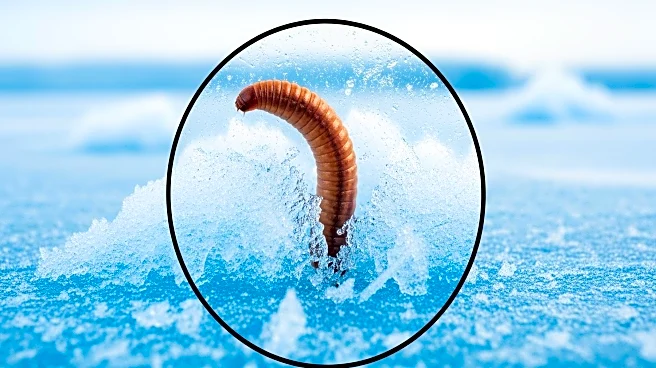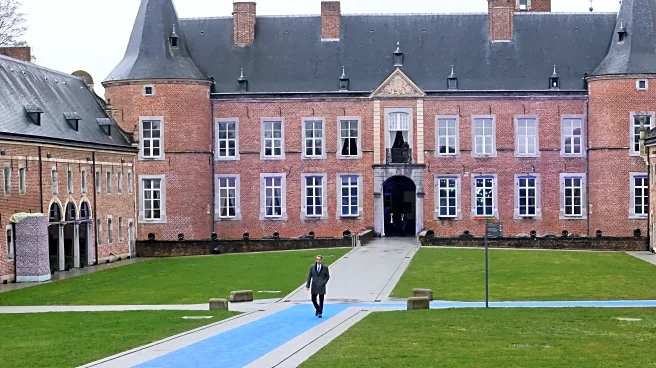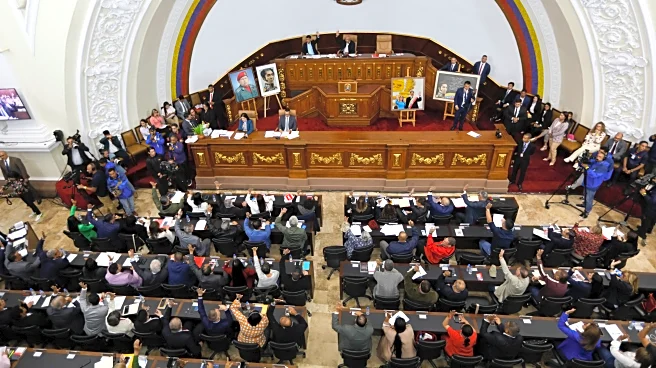What's Happening?
Scientists have successfully revived a nematode worm, Panagrolaimus kolymaensis, that was frozen in Siberian permafrost for over 46,000 years. The nematodes were discovered in soil samples from the Kolyma
River region, which have been preserved since the Last Ice Age. Upon gentle warming in a laboratory setting, these ancient worms resumed life functions, raising questions about their survival mechanisms. Researchers, led by Philipp Schiffer from the University of Cologne, identified the worm as a new species through phylogenomic analysis. The nematode's genome revealed triploidy, a condition often associated with asexual reproduction, allowing a single female to establish a new lineage. The study, published in PLOS Genetics, highlights the worm's ability to enter cryptobiosis, a state where life processes are paused to endure extreme conditions.
Why It's Important?
The revival of Panagrolaimus kolymaensis provides significant insights into biological survival strategies over geological timescales. Understanding the mechanisms behind cryptobiosis, such as the use of trehalose to stabilize cellular components, could revolutionize the storage of biological materials. This knowledge has potential applications in biobanking, improving the preservation of cells and tissues for medical and research purposes. Additionally, the discovery adds to the genetic diversity of modern ecosystems, offering new survival strategies that could be beneficial in adapting to changing environments. The research underscores the resilience of life and the potential for ancient organisms to re-emerge as permafrost continues to thaw.
What's Next?
As global temperatures rise, more permafrost is expected to thaw, potentially releasing other long-dormant organisms into contemporary ecosystems. This could lead to the discovery of additional ancient species, each with unique genetic traits and survival mechanisms. Researchers may continue to explore the applications of cryptobiosis in modern science, particularly in the fields of medicine and conservation. The findings could prompt further studies into the evolutionary processes that allow species to survive for millennia, offering new perspectives on biodiversity and the resilience of life on Earth.
Beyond the Headlines
The revival of ancient organisms like Panagrolaimus kolymaensis raises ethical and ecological questions about the impact of reintroducing long-extinct species into modern ecosystems. While most are likely harmless, the introduction of ancient genetic material could alter existing ecological balances. This discovery also highlights the importance of understanding and mitigating the effects of climate change, as thawing permafrost may release not only ancient life forms but also greenhouse gases, further influencing global climate patterns.











